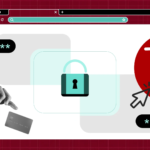How to Protect Your Personal Data from AI Spying Tools
Introduction: The Age of Invisible Spies
Welcome to the era where even your smart fridge might know more about you than your best friend. With the rise of AI-powered tools and devices, protecting personal data has become more crucial than ever. From smart assistants eavesdropping on conversations to apps tracking every swipe, AI spies are everywhere. But don’t worry — you don’t need to be a tech wizard to safeguard your privacy. This blog will walk you through practical, easy-to-follow steps to reclaim control over your personal data.
1. Know Your Enemy: How AI Spies on You
Before you can protect yourself, you need to know how you’re being watched. AI-powered tools collect data through:
- Voice Assistants (like Alexa, Siri, and Google Assistant): These devices “listen” for wake words, but sometimes they listen even when they shouldn’t.
- Apps & Social Media: Ever wonder why you see ads for shoes right after mentioning them to a friend? Apps track your conversations, location, and browsing history.
- Smart Devices (like Smart TVs, Cameras, and IoT Gadgets): These devices track usage patterns, viewing habits, and more.
- Web Browsing & Cookies: Websites and search engines track every click, keystroke, and search query to build a digital profile of you.
Once you know where your data is leaking, it’s time to block those leaks.
2. The Power of Permissions: Audit Your Apps
Your apps are like nosy neighbour’s — they’ll keep watching unless you set boundaries. Here’s how you can regain control:
- Check App Permissions: On both Android and iOS, review app permissions. Does a flashlight app really need access to your microphone? Spoiler: It doesn’t.
- Turn Off Unused Permissions: Disable permissions like location, camera, and microphone unless actively needed.
- Uninstall Suspicious Apps: If an app’s purpose seems fishy or its permissions are too invasive, delete it.
Pro Tip: Use privacy-focused apps like Signal (for messaging) and DuckDuckGo (for browsing) for better control over your data.
3. Say No to “Always On” Listening
Voice assistants are helpful, but they’re also listening when they’re not supposed to. Here’s how to keep them in check:
- Mute Your Assistant: Most smart assistants have a mute button. Use it when you’re not actively using them.
- Review Voice Recordings: Platforms like Alexa and Google allow you to review and delete stored voice recordings.
- Disable “Always Listening” Features: You can still use voice assistants without them always being on standby.
Pro Tip: If privacy is a big concern, consider opting for smart devices with manual, physical mute buttons (not just software toggles).
4. Master the Art of Browser Privacy
The browser is one of the biggest gateways for AI-powered trackers. Here’s how to protect your web activity:
- Use a Privacy-Focused Browser: Switch to browsers like Brave or Firefox, which prioritize privacy.
- Block Cookies & Trackers: Use browser extensions like uBlock Origin or Privacy Badger.
- Clear Cookies & Cache: Regularly clear cookies and browsing history.
- Use a VPN (Virtual Private Network): A VPN hides your IP address, making it harder for trackers to follow you.
Pro Tip: Avoid using “Incognito Mode” as your only protection — it’s not as private as it seems.
5. Lock Down Your Devices with Smart Settings
Simple tweaks in your device settings can significantly boost privacy. Here’s how:
- Disable Ad Personalization: Platforms like Google and Facebook allow you to turn off ad tracking.
- Enable Two-Factor Authentication (2FA): Add an extra layer of security to your accounts.
- Review Privacy Policies: Apps and platforms often update policies sneakily. Stay aware of changes.
- Encrypt Your Data: Use device encryption (most modern phones have this enabled by default).
Pro Tip: Turn off Bluetooth, Wi-Fi, and Location Services when not in use. They’re gateways for trackers.
6. Use the Power of Privacy-Focused Tools
Why fight alone when there are tools to help you? Here’s a privacy arsenal you should have:
- Password Managers: Use tools like LastPass or 1Password to create and store strong, unique passwords.
- VPNs (Virtual Private Networks): Services like NordVPN and ExpressVPN mask your location and browsing activity.
- Privacy-Focused Search Engines: Switch to DuckDuckGo, which doesn’t track your search history.
- Secure Messaging Apps: Use Signal or Telegram for encrypted messaging.
7. Proactive Privacy Habits for Everyday Life
Sometimes, privacy is more about habits than tools. Here’s how to stay safe daily:
- Think Before You Click: Avoid clicking on unknown links or attachments.
- Be Wary of Free Wi-Fi: Public Wi-Fi is a breeding ground for hackers. Use a VPN if you’re connected.
- Beware of Phishing Attacks: If an email or message seems off, it probably is. Don’t fall for fake login screens.
Conclusion: Take Back Control of Your Privacy
AI spying tools may be smart, but you’re smarter. By following these tips, you’ll significantly reduce the amount of data being collected about you. Remember, privacy isn’t just a right — it’s a practice. The more proactive you are, the more control you have over your digital life.
If you found this guide helpful, share it with others and help them protect their privacy too. Stay safe, stay private!




Leave a Reply
Want to join the discussion?Feel free to contribute!